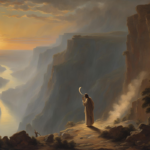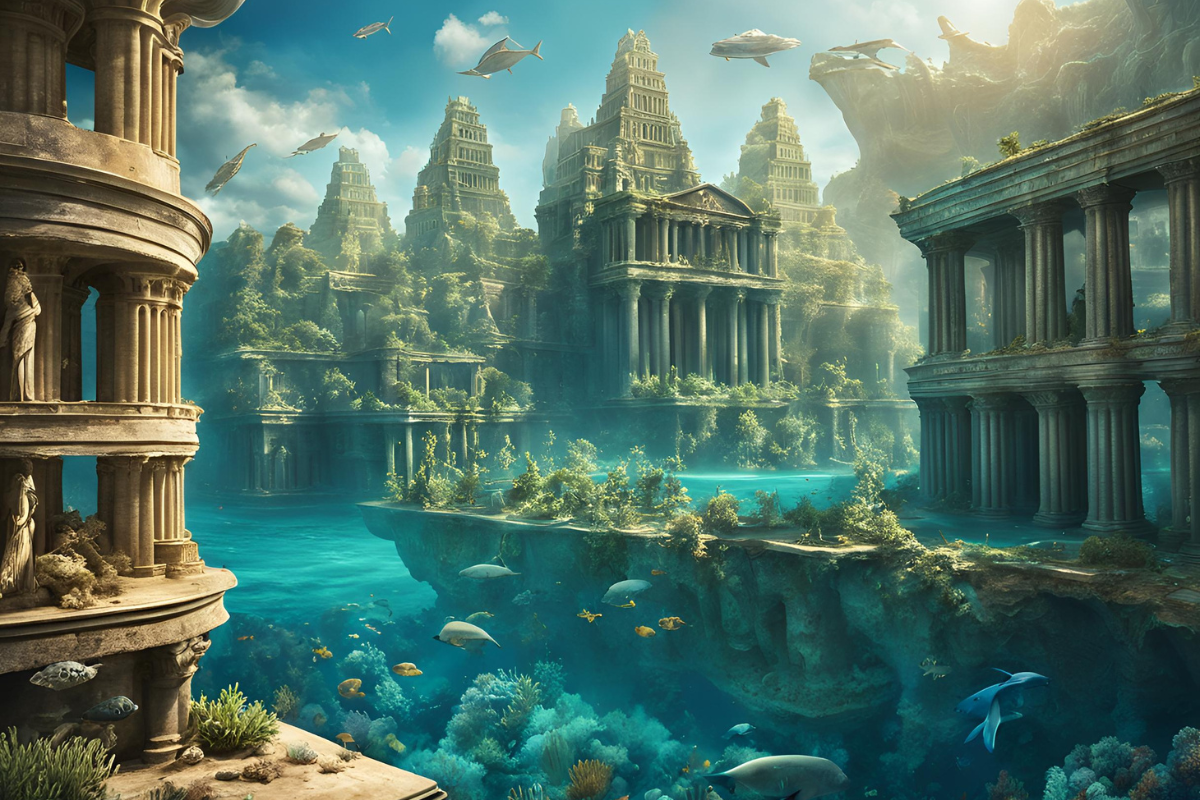The Legend of Atlantis
The story of Atlantis, a powerful and advanced civilization that disappeared beneath the ocean, has fascinated people for centuries. First mentioned by the ancient Greek philosopher Plato in his dialogues “Timaeus” and “Critias,” Atlantis was described as a utopian island nation with incredible wealth, sophisticated technology, and an influential culture.
Plato’s Account
According to Plato, Atlantis existed around 9,000 years before his time and was located beyond the “Pillars of Hercules” (modern-day Strait of Gibraltar). The Atlanteans supposedly became morally corrupt and power-hungry, leading to their downfall. The gods, angered by their hubris, sent cataclysmic floods and earthquakes that submerged the entire island in a single day and night.
Historical and Geological Investigations
The search for Atlantis has led many historians, archaeologists, and geologists to propose various locations, including the Mediterranean, Caribbean, and even Antarctica. Despite extensive research and numerous expeditions, no conclusive evidence has been found to prove the existence of Atlantis.
Theories and Speculations
- Santorini Theory: Some researchers believe Atlantis was based on the Minoan civilization on the island of Crete and Thera (modern-day Santorini). A massive volcanic eruption around 1600 BCE devastated the region, aligning with the story of a sudden and catastrophic event.
- Richat Structure: Also known as the Eye of the Sahara in Mauritania, this geological formation resembles the description of Atlantis in some ways. However, there is no solid proof linking it to Plato’s account.
- Mythological Symbolism: Many scholars argue that Atlantis was a fictional allegory used by Plato to illustrate the consequences of moral decay and the ideal society’s principles.
Cultural Impact
The legend of Atlantis has permeated popular culture, inspiring countless books, movies, and TV shows. It has become a symbol of a lost golden age and the quest for hidden knowledge. Despite the lack of tangible evidence, the allure of Atlantis continues to captivate imaginations worldwide.
Conclusion
Whether a historical reality or a creation of Plato’s imagination, Atlantis remains one of history’s most enduring and intriguing mysteries. Its story serves as a powerful reminder of the potential rise and fall of civilizations and the enduring human fascination with the unknown.
Read More: Health Facts
Read More: Earth’s Second Moon: The Astounding Fact About 3753 Cruithne

















